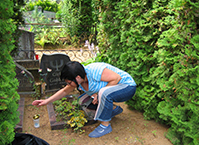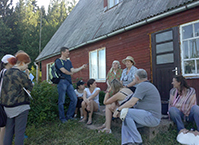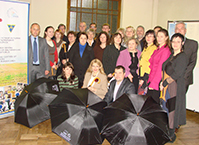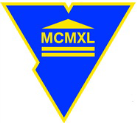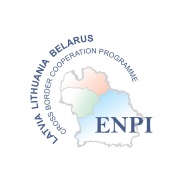The bathhouse traditions
Categories: Dagnija Bramane
Yes, we have a black bathhouse, i.e. the smoke is not let through the chimney, but it fills the whole bathhouse, therefore the walls are black and it is called a black bathhouse. We have thought that we need a new bathhouse, but we don’t only go to wash to the bathhouse, we also smoke meat, sausages and dry beer malt, therefore we don’t really need a white bathhouse.
Taking a steam bath is a particular ritual, as a tradition. The bathhouse is usually heated on Saturdays. And at first all the men went there to swat. Until Līgo (Summer solstice), whisks are collected and made from birch twigs, from twigs of various tress, from herbs. And then, those twigs were soaked and used to flap in the steam-bath. In winter, people go outside and roll in the snow or splash each other with cold water. Girls went after the men, when the bathhouse was a bit cooler, it was not that hot anymore. Then it was the girls’ turn to go. And the bathhouse is a place for conversation where conversations are lively and all those scents and steaming – all that is a ritual for both body and soul. After steaming, people always changed the linen, and there was such a nice atmosphere in the evening, when clean, sweet-scented sheets were spread and after steaming everything was clean; and the whole process itself is very lovely.
Apart from steaming in the bathhouse, we smoked meat there, too. We traditionally smoked meat and sausages. Then also the bathhouse is heated and all the foodstuffs are hung. And then, the whole process takes place and the appropriate firewood should be used. Usually, alder wood is used and later also other billets are added depending on what one wants to do with that meat and what taste he wants to get in the end. Sometimes twigs of juniper are added to get nice scent. Thus, we also smoke meat and sausages in the bathhouse – we use the bathhouse for several processes.
Audio
Researcher: Dr. philol. Valentīns Lukaševičs, Daugavpils Universitāte


